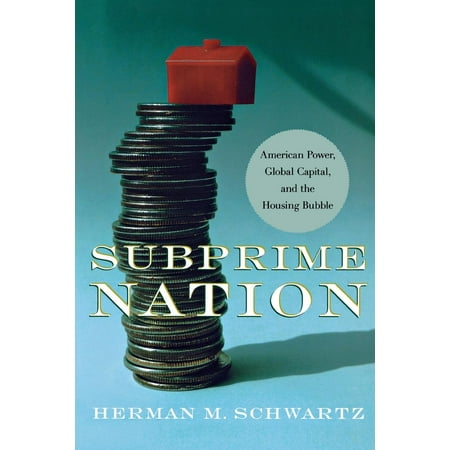
Price: [price_with_discount]

[ad_1]
Herman M. Schwartz looks at the consequences of the collapse of the US real estate market in a very timely and innovative manner. He believes that in the past two decades, the growth and power of the United States in the world have largely depended on the domestic housing market. Mortgage loan securities have attracted a group of overseas capital to enter the U.S. economy. High-level private housing ownership, especially in the United States and the United Kingdom, has helped to drive a disproportionate share of the world's capital flows.
As the events since mid-2008 have shown, mortgage banks are increasingly eager to extend housing loans, and the more they securitize their mortgage packages, the higher their profits. As a result, they are dangerously creative in creating new mortgage products, particularly adjustable interest rates and subprime mortgages, to attract new, primarily first-time buyers into the housing market. However, mortgage instruments will only work if they have confidence in the mortgage system. The failure of supervision in the US S&L department led to the accounting crisis of Arthur Andersen's extinction, as well as the subprime mortgage crisis that destroyed Lehman Brothers and Merrill Lynch, and damaged many other large financial institutions, which have jeopardized the important drivers of economic growth
Schwartz focused on The Impact of American Regulatory Failure on the International Economy. He believes that the "local" issue of the housing crisis has a continuing risk for the U.S. economy, the continued priority of the U.S. dollar in the international financial community, and U.S. hegemony in the world system.
[ad_2]
Orignal From: Sub-Country: U.S. Forces, Global Capital and Real Estate Bubbles
No comments:
Post a Comment